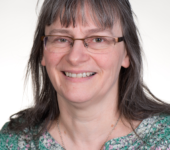Informal or Non-formal learning with comics – the CIELL project

Multi-lingualism is a priority for a global community and the need to learn a second language is high for business purposes, education or travelling around the world. The European Commission (EC) considers languages as one of the 8 key competences for lifelong learning: ‘’Enhancing the ability to use a variety of languages to be active and better cope with the challenges of today’s multilingual and diverse societies’’ (EC, 2017, p. 2). Accreditation of languages is also important hence the creation of the European Common European Framework of Reference for Languages with its levels and exams as a standard for describing language ability.
The Comics for Inclusive English Language Learning (CIELL) project aims to develop the competences of second language teachers by promoting the use of comic art, and other visual representations of knowledge. It also aims to enhance the quality of language teaching materials used for teaching writing as a second language and support the needs of dyslexic learners in a socially inclusive manner using an informal pedagogy.
European educational policy places importance on informal and non-formal learning as well as formal:
“‘Real’ life-long learning is about more than adding professional trainings and courses to your curriculum vitae. We also learn in non-formal ways, out of interest but without an approved syllabus, and even informally, by experience but without the deliberate intention to acquire knowledge or skills. The European Union is engaging in activities to make sure that these alternative ways of learning are acknowledged, validated and may lead to a qualification” (EC, 2019, para 1).
OECD skills outlook 2019 stresses the need to find flexible ways of learning while the EU recommends informal or non-formal ways of learning, as a possible path to accreditation. Unfortunately:
“We know that people learn and prefer to learn in many other ways, and furthermore that many people regularly spend time on some planned self-learning – and yet most organizations don’t support this, preferring to maintain total control of what, when and how their people learn” (Hart, 2019, para.2).
The CIELL project is redefining pedagogy from an inclusive point of view, taking account of the need for a more flexible, informal learning path towards language certification. A mobile app is being developed for learners of English that supports the learning of writing, without having a formal syllabus.
Abandoning the language of medical diagnosis, dyslexia is viewed as a difference and not a disability while still recognising the diverse range of variation that can occur. Dyslexia is seen as a specific learning difference that should be accommodated within inclusive teaching practices that recognise these individual differences (Kormos & Smith, 2012).
The pedagogy of informal learning accommodates learning alternatives, such as the use of comics for learning to structure writing, that promote engagement, memorisation, and entertainment. What other foreign language pedagogies have neglected :
a) learners are social beings defined by the shared culture, online and offline, so a communicative approach may not work for all learners or specific ethnic groups.
b) media have different social values, netiquette and need different competences. To illustrate, it is hugely different to read a book or to use an app for reading. It presupposes the intervention of technology and specific skills. So far, the most widely adopted technologies in classrooms are projectors and white-boards while students can use, effectively, mobile devices and apps.
c) when students attend university classrooms or training seminars they must focus on black and white texts and many presentations. As a result, educators talk about student apathy, lack of critical thinking, and inability to focus on the task in hand for long. It is certainly the age of digital distraction, but the terror of staring at writing on a blank page is common even for professional writers. Innovative approaches and digital tools are not well explored and effectively implemented within foreign language teaching practice. Hence, the terror of the white page dominates foreign language writing courses.
Therefore, the CIELL project goals are to:
- enhance the digital competence of second language teachers by providing a Compendium of open educational resources including a Teacher’s Pack and examples of good practice in the use of comics in education, and
- develop innovative teaching materials delivered in a mobile application to support visual teaching and learning practices and increase the language competence and foster social inclusion of dyslexic learners.
- develop an app to support students (including dyslexic students) preparing for the written component of high-stakes language proficiency exams such as IELTS and Cambridge Advanced and Proficiency. The app’s focus is on opinion essays, reviews and article writing. Writing guidelines and sample essays are being created in comic form with other visual representations. The essay writing topics are based on the 17 United Nations Sustainable Development goals for 2030.
The project uses an Educational Design Research approach to create an intervention in a real educational setting to support the informal learning of how to write in English as an essential competence for lifelong learning in today’s multi-lingual societies.
Acknowledgements
This research has been co-funded by the European Union under the ERASMUS+ programme, with partners: Institute for Learning Innovation, Friedrich-Alexander University, Germany; Language Centre, University of Cyprus, Cyprus; and AKTO College, Greece; and Centre for Technology-Enhanced Learning, Lancaster University.
References
Kormos, J. & Smith, A.M. (2012). Teaching languages to students with specific learning differences. Bristol: MM Textbooks.
About the Authors:
 Chryssa Themelis is a researcher at Lancaster University, professor/doctoral advisor at Bolton University and an expert of technology enhanced learning (TEL). She works as a researcher/trainer for EU projects such as Erasmus + and coordinates the annual VocTEL conference aiming to promote TEL in Europe. She holds a BA in Economics from Deere College, a MSc in Networked Learning and a PhD in the field of “E-research and Technology Enhanced Learning” from Lancaster University (department of educational research).
Chryssa Themelis is a researcher at Lancaster University, professor/doctoral advisor at Bolton University and an expert of technology enhanced learning (TEL). She works as a researcher/trainer for EU projects such as Erasmus + and coordinates the annual VocTEL conference aiming to promote TEL in Europe. She holds a BA in Economics from Deere College, a MSc in Networked Learning and a PhD in the field of “E-research and Technology Enhanced Learning” from Lancaster University (department of educational research).
 Julie-Ann Sime is a pioneer of online distance learning who has been teaching online for 25 years. She also has 30-year experience of researching into the use of new technologies in training and education, including: use of video for reflection, game-based learning and virtual worlds for training professionals. She is co-editor of a new book on Networked Learning: Reflections and Challenges (2018).
Julie-Ann Sime is a pioneer of online distance learning who has been teaching online for 25 years. She also has 30-year experience of researching into the use of new technologies in training and education, including: use of video for reflection, game-based learning and virtual worlds for training professionals. She is co-editor of a new book on Networked Learning: Reflections and Challenges (2018).

Mohammed Abdus Samad
August 1, 2019 at 1:55 am
Excellent
Maria Murphy
May 18, 2020 at 5:55 am
I found this really interesting . I found you through an online course with Future Learn. I am an ASD /SEN Teacher and Disbility & inclusion advocate.
UlianaLema
October 18, 2022 at 2:06 am
Great way to learn! For classical study of English and preparation for exams, I recommend the online English school EnglishPapa.
https://englishpapa.com/
On the site you can take a free test to determine the level of English. After training, an international certificate is issued